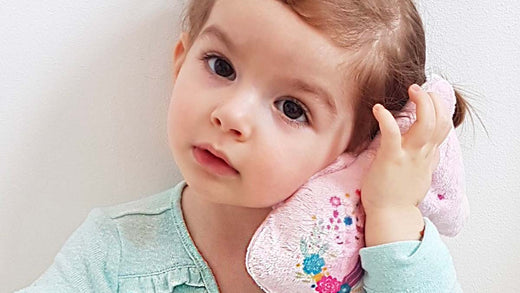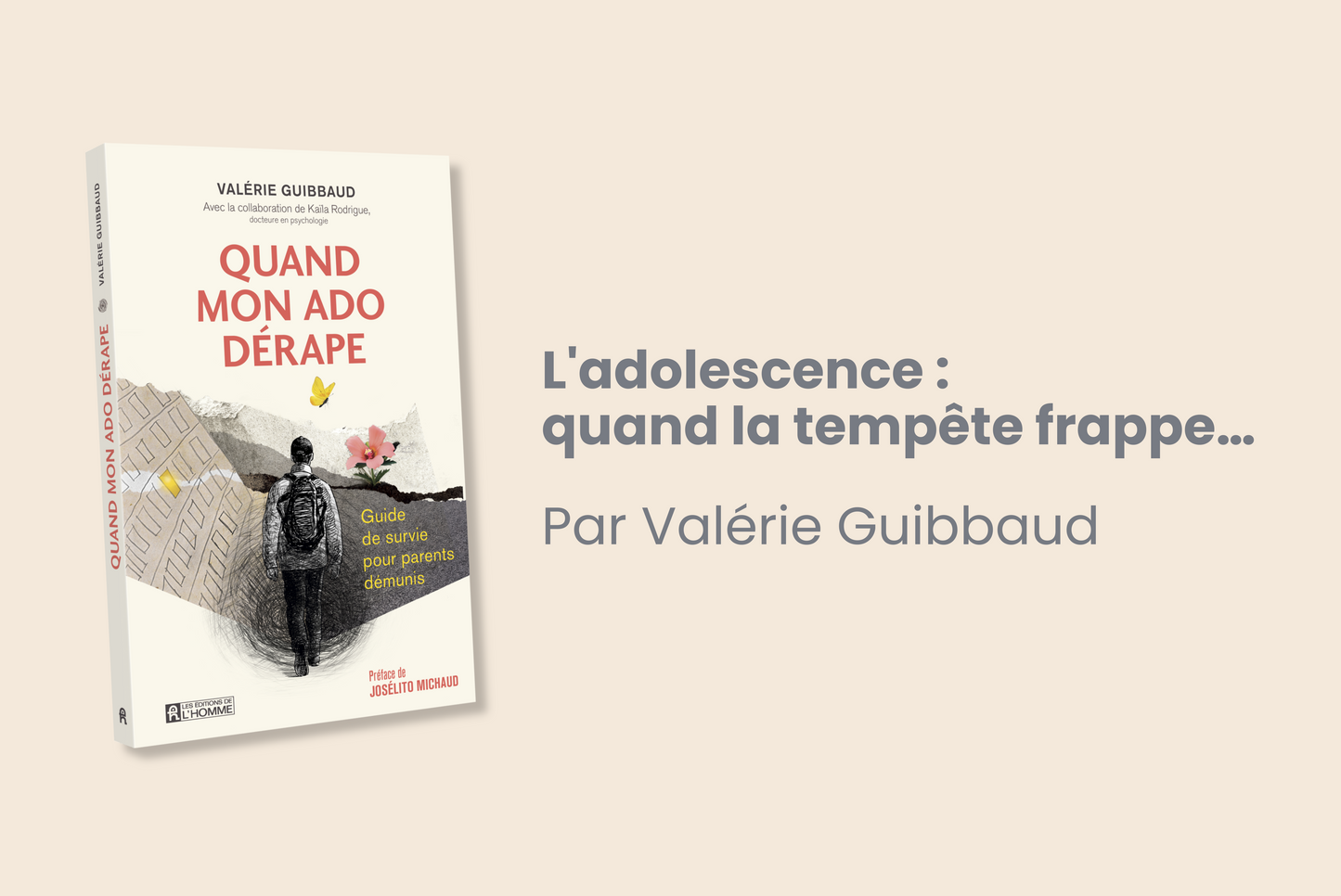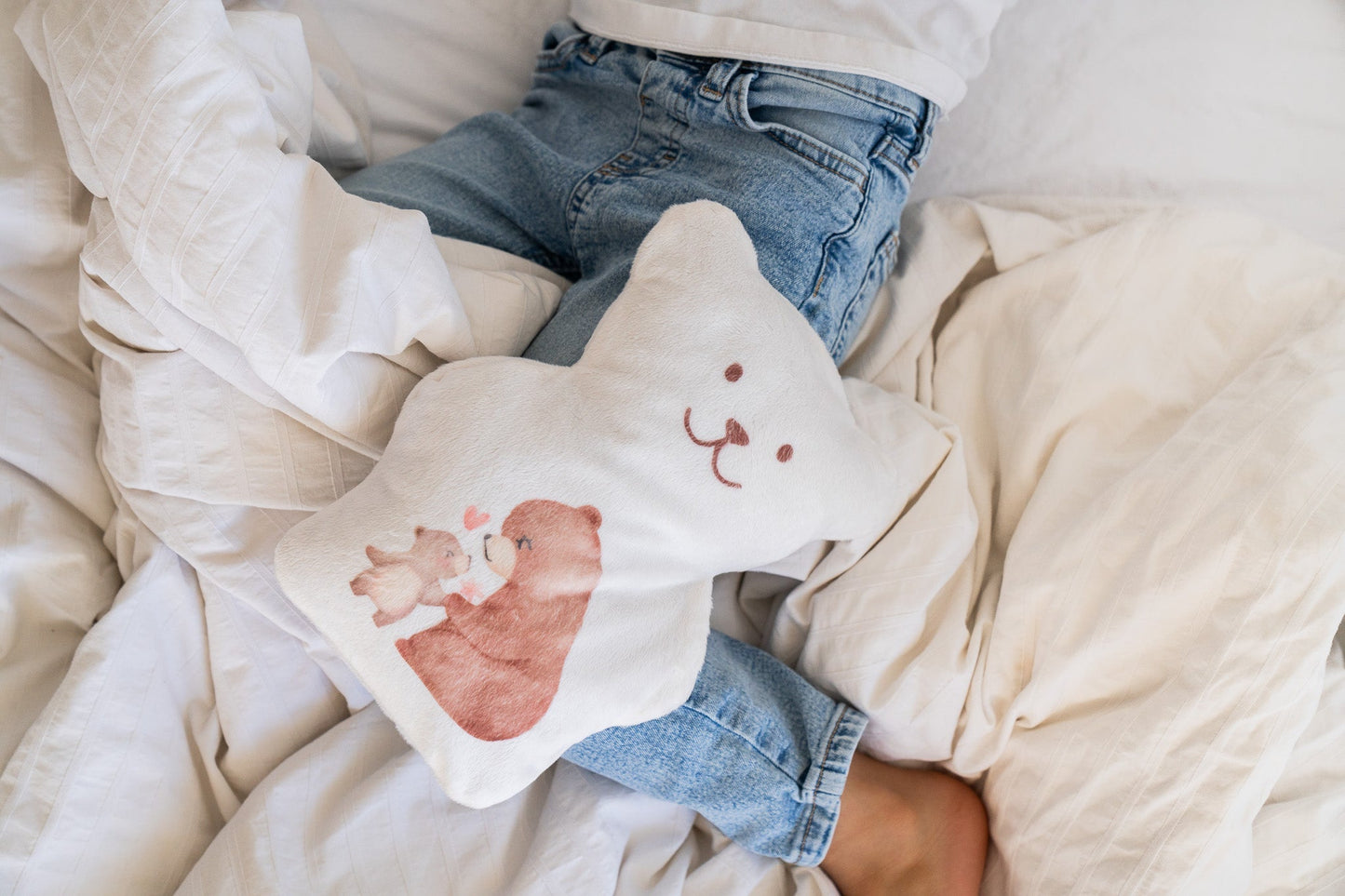

Baby is moody?
His cheeks are very red?
No appetite?
Does it emit impressive drool flows?
His digestion seems disturbed, his stools are liquid and acidic?
Is the skin on her buttocks red and irritated?
He's not sleeping like usual?
Maybe he even has a slight fever?
It's probably teething!
When do the first teeth appear?
Usually the first teeth come out between 4 and 10 months. But, they can come before! If the parents got their teeth early, there is a good chance that their child will be precocious too.
Keep in mind that teething phases don't always end successfully, meaning they can be long and painful for baby — and trying for parents — but teeth don't necessarily come through right away after a difficult period!
So what can you do to ease your baby's teething pain?
Here are 5 simple tips to relieve baby's teething pain naturally.
Tip #1: Apply a cold therapy bear to baby’s cheek
Extremely effective, the therapeutic bear works its magic in just a few minutes. Applied to the cheek, the cooled bear acts as a natural anti-inflammatory by reducing the swelling of baby's gums and reducing dental pain.
This cute little companion from Béké-Bobo contains a patented blend of organic cereal seeds that releases moisture when cooled. Simply store it in the freezer and take it out when baby needs it!
Did you know? The Béké-Bobo bear is a medical device recognized by the European Union and Health Canada.
Warning, the child must be constantly supervised while using the bear. It is important to prevent the child from putting it in their mouth because if the cereal pouch in the bear's cover is torn, there could be a risk of suffocation.
Tip #2: Have baby chew on a cooled teething ring
To soothe your baby's urge to bite and provide relief, you can give your child a teething ring that has been chilled in the refrigerator. Be careful - avoid putting it in the freezer, as the frozen ring could hurt your child if it comes into contact with the heat of the mouth (a bit like sticking your tongue to a frosty metal object in winter!). The action of biting will relieve your baby's tension and soothe their gums, which will do them good.
Little parent tip : remember to attach the teething ring to a teething bib , to prevent it from falling on the floor and to ensure that it is always within reach of baby!
Tip #3: Give your child a frozen piece of bread
When little ones are teething, they usually have an irresistible urge to bite. From the age of 6 months, when your child has started introducing food, you can give him a piece of bread to chew on. Since the cold has a pain-relieving effect and soothes the gums, you can even give it to him frozen. The bread will slowly defrost while he chews on it.
Warning : if your child tends to choke on pieces, this is probably not the best thing for him! Indeed, some children bite and suck the crust of bread without problem, while others tear off large pieces and try to swallow everything… In any case, watch your child carefully if you try the experiment!
Tip #4: Massage baby's gums
Using a clean finger, gently massage your child's sore gums. Apply light pressure to the gum and massage gently to soothe the toothache. Avoid using gel or other products and do not force the teeth unnecessarily... You could hurt your baby!
Tip #5. Give your child big kangaroo hugs
It may make you smile, but cuddling your baby while he's teething will do him a world of good! Not only will it bring him comfort, but the release of oxytocin that promotes a feeling of well-being when cuddling will be beneficial. So consider babywearing during the most difficult times, for example by choosing an adjustable sling type wrap, to keep baby close to you when he needs it most, while having your hands free!
Is your parent's heart worried?
If, despite these few tips for relieving dental pain, you are worried about your child's condition, follow your instincts and go to your doctor for a consultation. Indeed, a sullen, feverish or very irritable child may be harboring something else... So it is always better to be vigilant!






